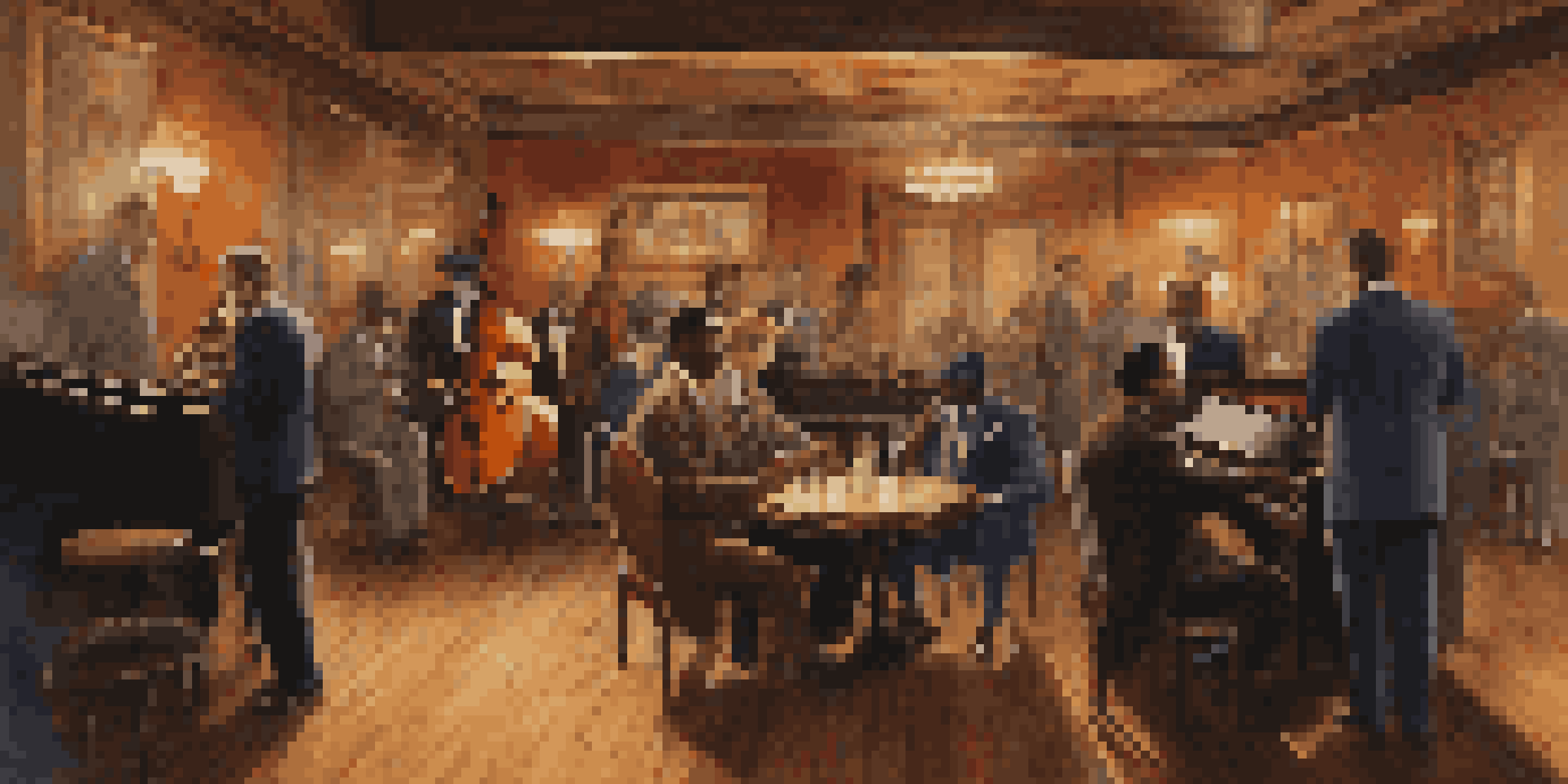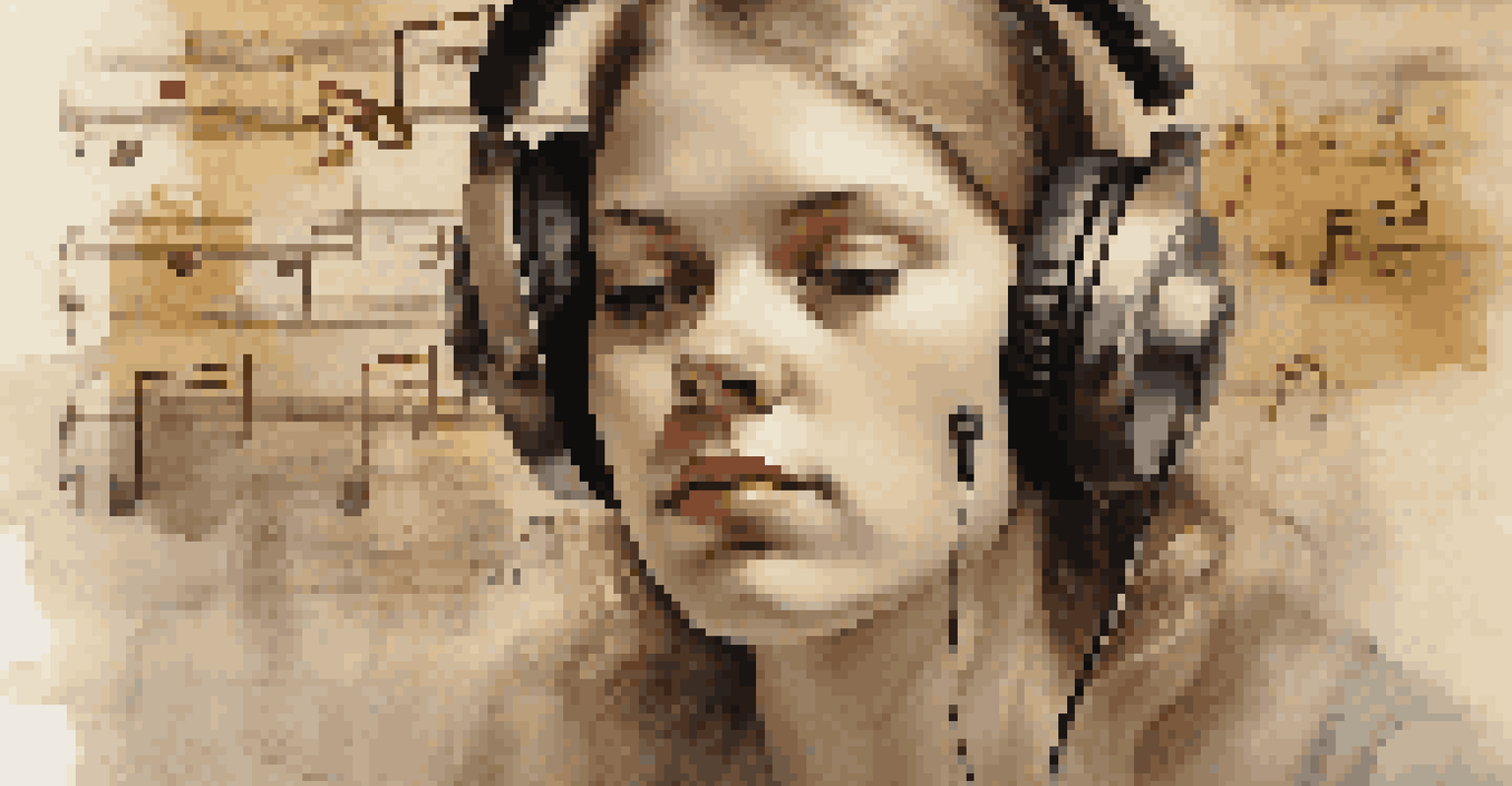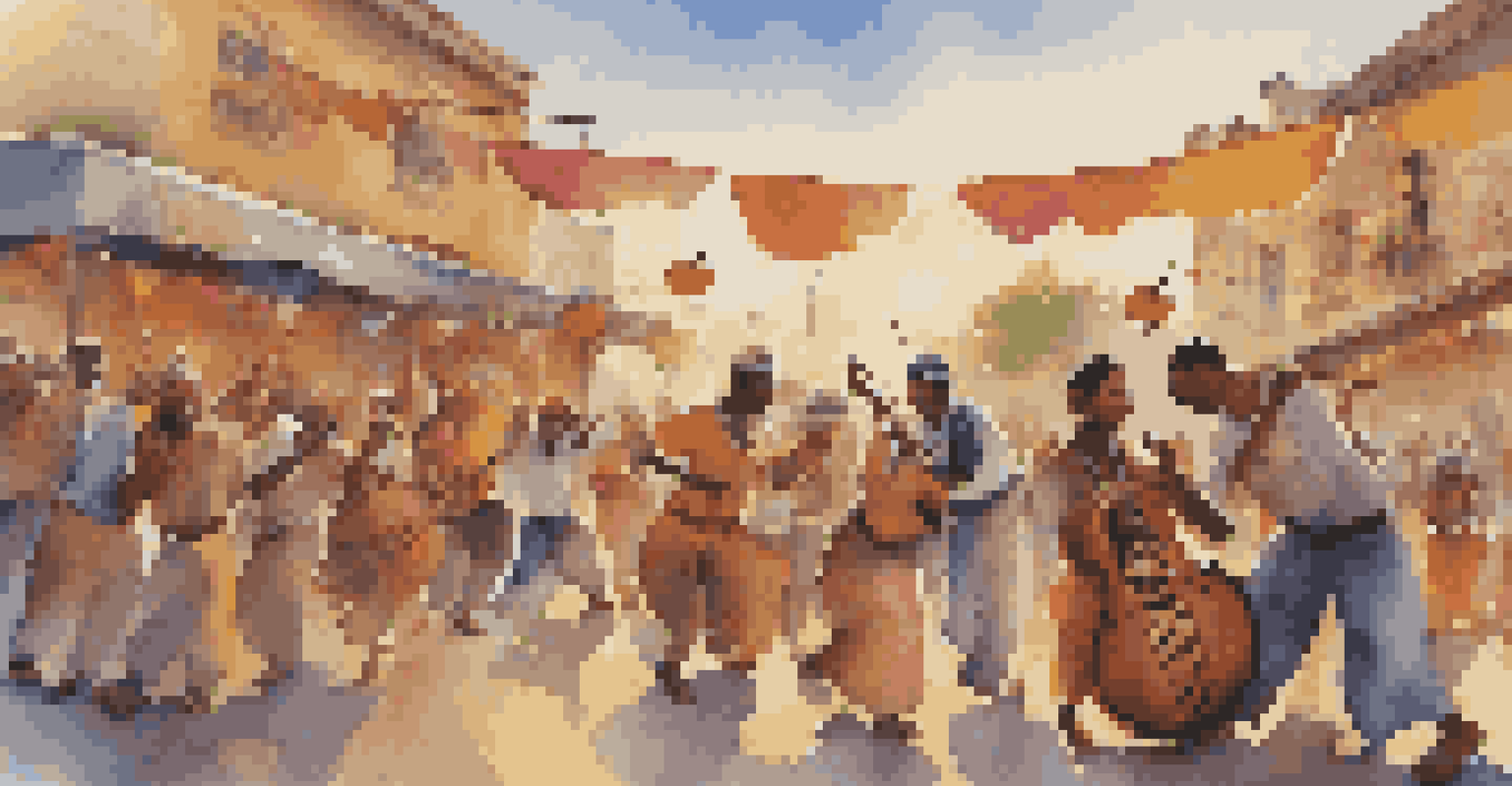Music's Role in Shaping Historical Perceptions of Time

The Rhythm of Time: Understanding Historical Context
Music has always been intertwined with the fabric of history, acting as a cultural mirror reflecting societal values. Each era of music can tell us about the thoughts, struggles, and aspirations of people during that time. For instance, the emergence of jazz in the early 20th century echoed the struggles of African Americans and the fight for civil rights.
Music is the shorthand of emotion.
By analyzing the lyrics and styles of different musical genres, we can glean insights into the concerns and triumphs of past generations. This makes music a powerful tool for historians seeking to understand the emotional landscape of a given period. Just as a photograph captures a moment in time, music encapsulates the sentiments and realities of its era.
Moreover, the evolution of musical styles often parallels significant historical events, such as the rise of protest songs during the Vietnam War. This connection highlights how music not only reflects history but also shapes it, influencing cultural movements and public opinion.
How Music Creates Collective Memory
Collective memory refers to how groups of people remember their shared past, and music plays a crucial role in this process. Songs often serve as anthems for movements, encapsulating the sentiments of a community and creating a lasting sense of identity. Think of 'We Shall Overcome'—its melody and lyrics evoke a powerful memory of the civil rights movement.

When we listen to music from a specific time, it can evoke nostalgia and a sense of connection to the past. This emotional link reinforces our understanding of historical events and can even shape our perceptions of time itself. For example, music from the 1960s may not only remind us of the era but also of the values and struggles associated with it.
Music Reflects Historical Context
Music serves as a cultural mirror, revealing the thoughts and struggles of society during different historical periods.
Additionally, music can transcend generations, allowing younger audiences to connect with historical events they haven't personally experienced. Through this lens, music becomes a bridge, linking the present with the past and enriching our collective memory.
The Influence of Music on Historical Narratives
Music can alter our understanding of historical narratives, often providing a counter-narrative to mainstream accounts. For instance, folk songs from various cultures can highlight stories and experiences that are often overlooked in traditional historical texts. These songs give voice to the marginalized and help paint a more holistic picture of history.
Without music, life would be a mistake.
Consider how the ballads of the Appalachian region tell stories of hardship and resilience, reflecting the lives of the working class. This perspective adds depth to our understanding of American history, reminding us that the experiences of all individuals are vital for a complete narrative.
As such, music not only enriches historical discourse but also challenges dominant narratives, urging us to reconsider who gets to tell history and how it's told. This interplay between music and history encourages us to be more critical of the sources we rely on.
Music as a Tool for Time Travel
When we listen to music from a different era, it can feel like stepping into a time machine. The melodies, rhythms, and instrumentation can transport us to places and moments we’ve never experienced firsthand. This sensation of 'time travel' allows us to connect with the emotions and experiences of those who lived in that time.
For example, listening to classical pieces from the Baroque period might evoke an appreciation for the grandeur and intricacy of that era. It creates an atmosphere that allows us to imagine the social and cultural contexts that shaped the music.
Collective Memory Through Music
Songs create a sense of identity and nostalgia, linking communities to their shared past and shaping perceptions of history.
Furthermore, this experience is not limited to historical music; contemporary songs often reference past events, weaving history into the fabric of today’s musical landscape. In this way, music becomes a living archive, inviting us to explore the past while grounding us in the present.
The Role of Music in Cultural Identity
Music is a cornerstone of cultural identity, shaping how communities perceive themselves and their history. Different musical traditions can signify belonging and heritage, often reflecting the unique narratives of a group. For instance, Indigenous music often conveys stories of land, spirituality, and resistance, reinforcing cultural identity through generations.
As communities face the challenges of modernization and globalization, music serves as a reminder of their roots and traditions. This preservation of cultural heritage through music helps maintain a sense of continuity with the past, allowing future generations to connect with their ancestry.
Moreover, the blending of musical styles across cultures can create new identities that honor both tradition and innovation. This dynamic interplay not only enriches our musical landscape but also influences how we perceive cultural histories.
The Emotional Power of Music and Time
Music has a unique ability to evoke emotions, and these feelings can significantly shape our perception of time. For many, certain songs are inextricably linked to specific moments, making them feel as if time has stopped during those recollections. This phenomenon can be seen in how a love song might transport someone back to their first dance, making them relive those emotions vividly.
Moreover, studies have shown that music can alter our perception of time itself, making it feel like it flows differently when we engage with certain rhythms or melodies. For example, upbeat music might make time feel like it’s flying by, while slower pieces can drag it out, allowing us to savor the moment.
Music Alters Historical Narratives
Folk songs and diverse musical traditions provide counter-narratives that enrich our understanding of history, highlighting marginalized voices.
This emotional connection to music not only enriches our personal experiences but also influences our collective understanding of historical timelines. As we associate specific songs with significant events, those melodies become markers in our memory, helping us navigate the past.
Conclusion: The Lasting Impact of Music on Historical Perceptions
In summary, music plays a vital role in shaping our understanding of history and time. It serves as a cultural archive, preserving the stories, emotions, and experiences of past generations. Through its rhythms and melodies, music connects us to the struggles and triumphs of those who came before us, enriching our perception of historical narratives.
Moreover, the interplay between music and history reminds us that our understanding of the past is dynamic and continually evolving. As we listen to and reflect on music from different eras, we find new meanings and connections that challenge our perceptions of time.

Ultimately, music is more than just a form of entertainment; it is a powerful tool that shapes our collective memory, cultural identity, and emotional experiences, ensuring that the echoes of history remain alive and relevant in our lives today.